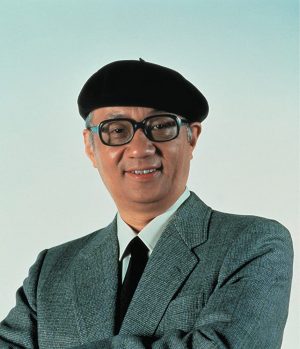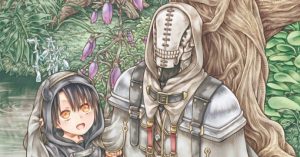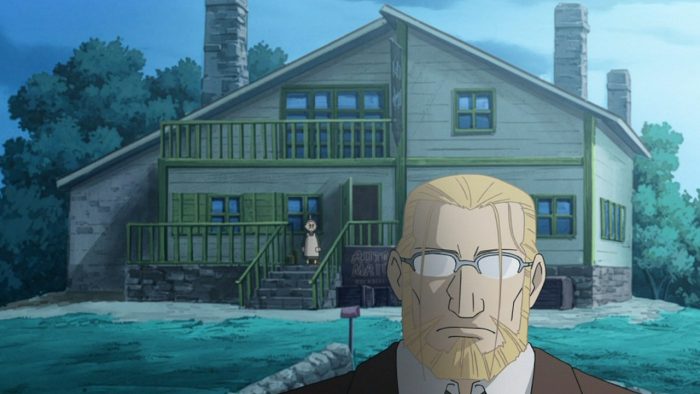
Father’s Day is coming up and each year we can expect to see pictures of the best and worst fathers in anime making their rounds on the internet. Each year we think about our fathers or people in our lives who have played such a role and maybe even anime characters who have definitely earned their stripes as good parents to their children.
This year, we’re looking at 11 years of Fullmetal Alchemist: Brotherhood, and with the classic series being on Netflix, many people have been unable to resist a rewatch. The series is relevant on Father’s Day because of the double, no, triple, maybe even quadruple entendre that the series plays upon the word and concept of a father. Those who haven’t seen the series should get to it and those who have should buckle-up: things get a little weird.
Fatherhood in the series
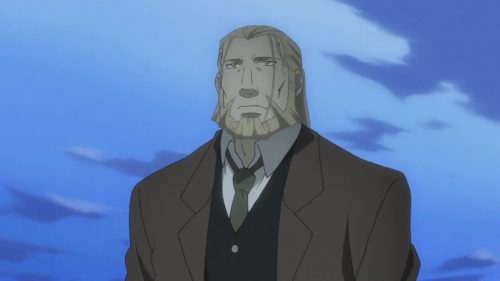
Fullmetal Alchemist: Brotherhood has heavy themes, but few are as prevalent and as layered as that of fatherhood in the series. The Elric Brothers’ descent into human transmutation comes as the conclusion of their following in their father’s footsteps and becoming alchemists. Their father, Van Hohenheim, has a strained relationship with his children due to his leaving in their childhood, something we learn has everything to do with the fateful juxtaposition of Van Hohenheim and the series antagonist, Father, also known as The Dwarf in the Flask.
The Dwarf in the Flask/Father
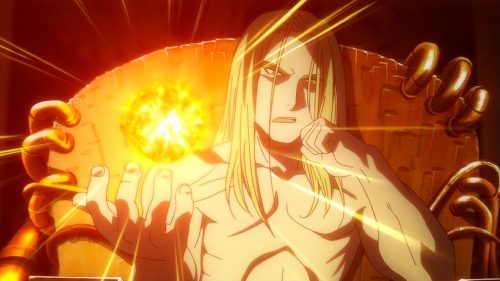
Father is a homunculus created from Van Hohenheim’s blood back when he was known as Slave #23. Father has since gained a body similar in appearance to that of Van Hohenheim, solidifying his presence as Van Hohenheim’s foil in the series and lifetime nemesis, but also playing with a lot of interesting concepts within the show’s meta. After the incident that caused the disappearance of the entire population of Xerxes, Father had gained immense power as a philosopher stone incarnate and moved west with this power, creating the country of Amestris in order to repeat the Xerxes catastrophe on a much greater scale with a much better understanding of the alchemy required to become “God”.
Father then created the homunculi in the series as manifestations of his Pride, Wrath, Lust, Envy, Gluttony, Sloth and Greed. These homunculi are better understood as created or manufactured humans and were created to serve Father’s ambitions, but also proved to be like family in a strange way. He is in this case, “father” because of his relationship with the homunculi he created but also “Father” (capitalized) because of his ambition to become the perfect being – a god. One thing to note is how Father’s first child, Pride, looks exactly the way Father did when he was still the Dwarf in the Flask. Christian lore places pride at the very top of the sin hierarchy, dubbing it “father of all sins” because it is supposedly the state most opposite to God – it was through pride that Lucifer fell from heaven and became the Devil; hence pride being considered the most heinous of the Seven Deadly Sins and thus the scariest and most destructive of Father’s children.
Christianity’s God is referred to as “the Heavenly Father” and considered a paternal aspect in the Christian faith. Fullmetal Alchemist: Brotherhood’s characterization of Father is a clear nod to the Christian conception of the deity especially when one considers the fact that the Seven Deadly Sins are a Christian concept originally stemming from early Christian monks known as “the desert fathers”. The Catholic Church used the concept of the Seven Deadly Sins to prevent people from committing evil deeds and they often noted Pride and Greed to be especially heinous.
Slave #23/Van Hohenheim
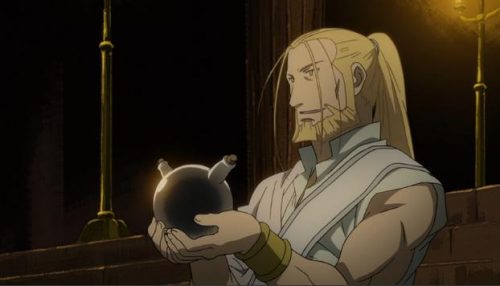
The father of the series’ main characters Edward and Alphonse Elric, Van Hohenheim’s relationship with fatherhood in the series is unique and exciting. After his blood is used to create the homunculus that would eventually cause the fall of Xerxes, the Dwarf in the Flask thanks Slave #23 by giving him a name. Initially suggesting the name “Theophrastus Bombastus”, the Dwarf in the Flask decides to name his “father” “Van Hohenheim”. The funny thing about this particular interaction is the fact that both names are actually reference to the same individual: Paracelsus, or rather, Philippus Aureolus Theophrastus Bombastus Von Hohenheim: an alchemist and physician dubbed the father of modern toxicology.
In the series, Van Hohenheim and the now-housed-in-a-body Dwarf in a Flask share an outward appearance and a fate as living philosopher’s stones; however, they go in different directions, causing the establishment of alchemy and related crafts where they went. For this reason, the golden-haired, golden-eyed “sole” survivor of Xerxes was hailed as a miracle worker or sage, hence the series’ legendary character(s) known only as the Sage of the West and the Sage of the East. Initially, we assume that the sage is the same person; however, we come to realize that Father went west while Von Hohenheim went east, both causing miracles wherever they went.
Final Thoughts
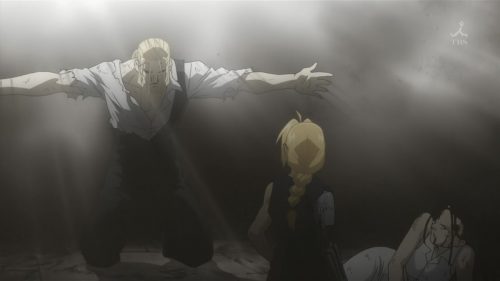
Ultimately, Fullmetal Alchemist: Brotherhood plays with fatherhood in so many ways that the term “double entendre” no longer seems quite right. We see how the Elric Brothers are highly influenced by their father in their pursuit of alchemy as kids, but also how they end up embroiled in a centuries-long conflict against an entity that is their father but… isn’t. We also see how the conflict kept Van Hohenheim occupied with obtaining knowledge and how that is the main source of Hohenheim’s guilt throughout the series: his absence led to his sons suffering through the death of their mother alone, leading to their breaking of the taboo, which made them sacrifice candidates to serve as the pillars of the improved country-killer transmutation circle. The Elric Brothers’ involvement in the conflict against Father was yet another stain on Van Hohenheim’s conscience but he needed their help.
Maybe the sins of the fathers really are visited upon the children.
Recommended Post


